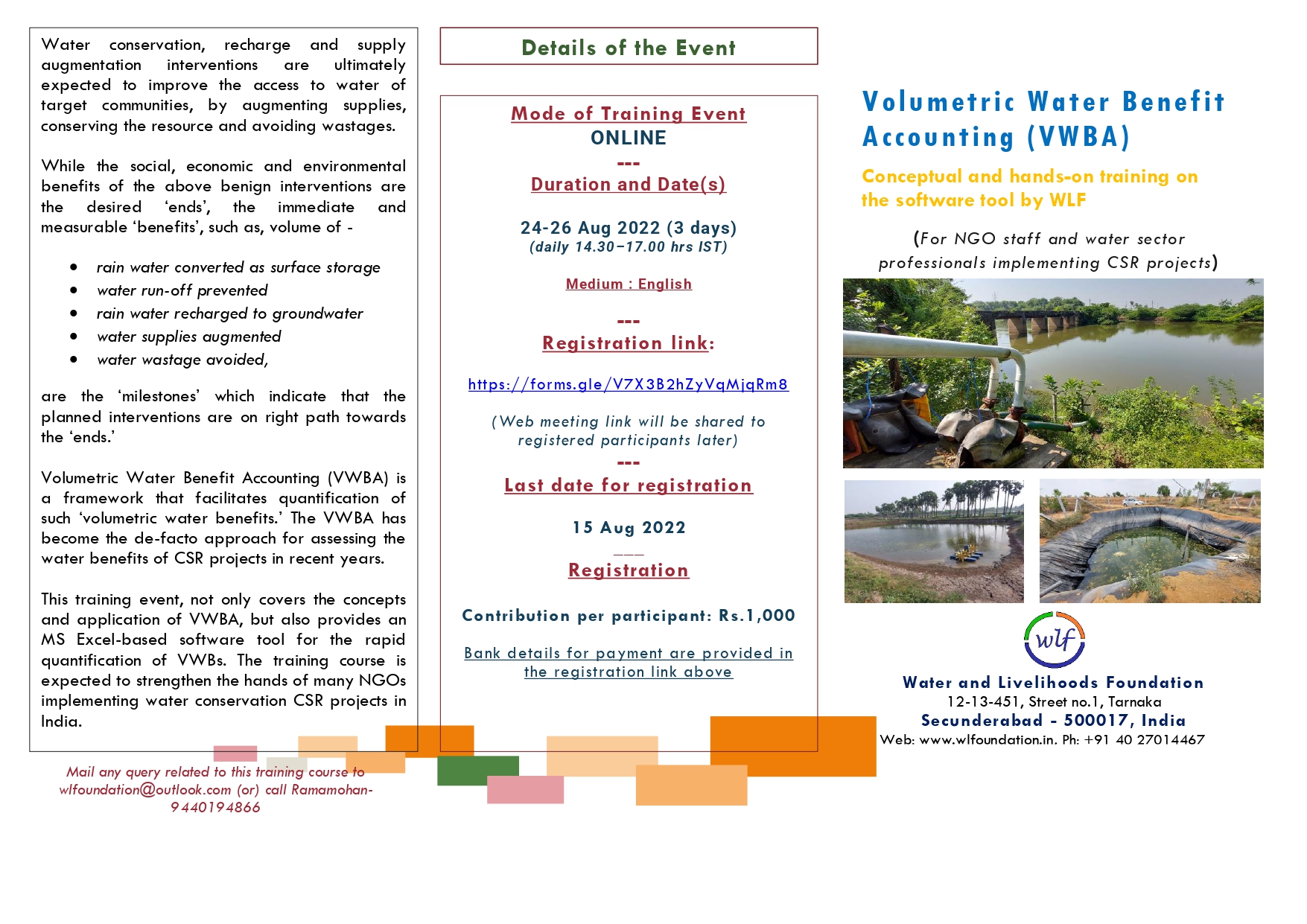India
Push for sustainable substitutes for single use plastics
Posted on 22 Jun, 2022 05:23 PMGoMassive Earth Network, an investment network for investing in startups in the sustainability space had in November 2020, GoMassive launched Climate Angels, which is an early-stage investment syndication platform for pollution reduction and climate tech.

Financing clean energy transitions to meet India's climate goals
Posted on 20 Jun, 2022 08:40 PMIn 2021, at global climate negotiations, the government established a new commitment to reach net-zero greenhouse gas emissions by the year 2070. It also reaffirmed its aim to install 500 GW of non-fossil power capacity by 2030.

Sustainable investing to surge to US$125 billion in India by 2026
Posted on 18 Jun, 2022 09:59 AMClimate change consciousness has led to global investment firms prioritising sustainable investments, not only for long-term financial returns but to also provide positive social effects.

Volumetric Water Benefit Accounting (VWBA)- A Conceptual and hands-on training by Water and Livelihoods Foundation
Posted on 13 Jun, 2022 12:50 PM
Re Sustainability announces mega Innovation Fund to incubate the best waste management, recycling, and circular economy ideas
Posted on 08 Jun, 2022 10:23 AMRe Sustainability Limited, a KKR-backed company that is Asia
ITC scales up its 360-degree interventions for a greener earth
Posted on 04 Jun, 2022 05:13 PMOn this World Environment Day, ITC reaffirmed its commitment towards a greener Earth through its bold Sustainability 2.0 agenda.

Six priorities for decarbonization in industrialized and emerging economies
Posted on 01 Jun, 2022 02:05 PMThere is an unprecedented level of awareness of the role of decarbonization in enabling environmental sustainability moving forward.

Implementing construction waste management in India
Posted on 26 May, 2022 11:55 PMIndividual’s attitude and behaviour is crucial for implementing sustainable construction & demolition (C&D) waste management.

Climate change and transition in cropping patterns in West Bengal
Posted on 26 May, 2022 01:35 PMWith changing climatic and market conditions, Indian agriculture sector needs appropriate transition in cropping patterns to ensure sustainability in growth of the sector and inclusiveness of land-constrained farmers in the intensification process.

One water, one data
Posted on 25 May, 2022 02:58 PMAny large-scale water security program by the government needs two things: [i] continuous data - given the dynamic nature of water - its annual replenishment depends on how much rainfall occurs and what farmers decide to grow in that agricultural cycle; and [ii] people who understand this data and continue to maintain the implementation post-intervention.
